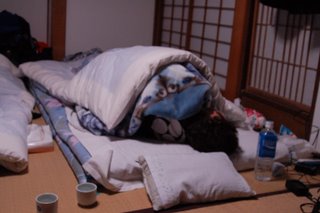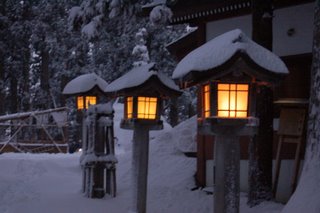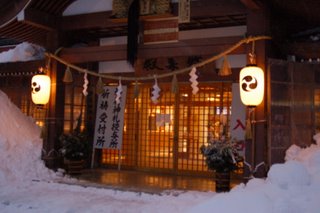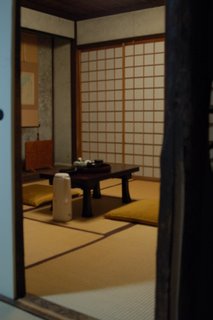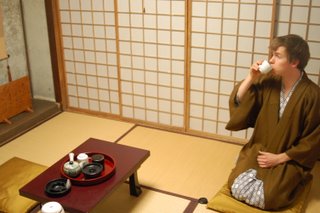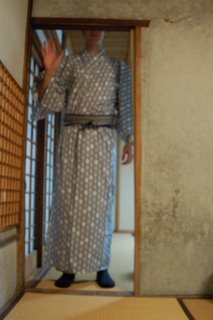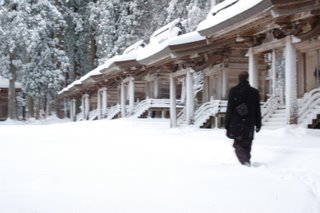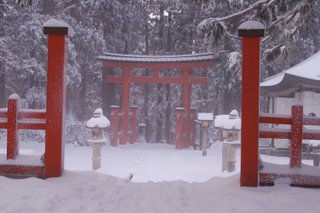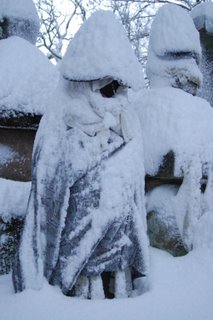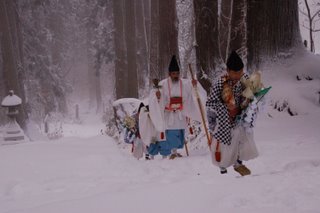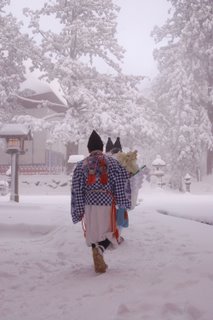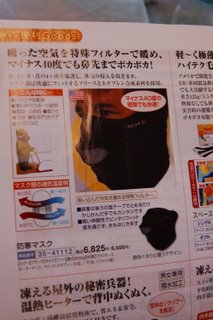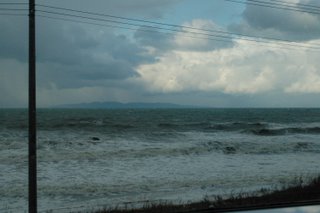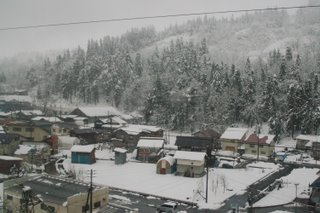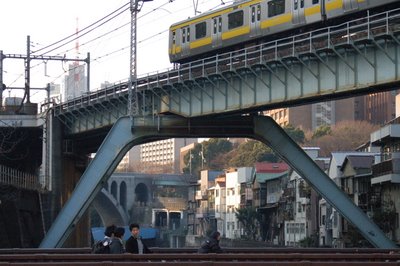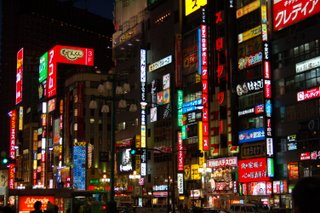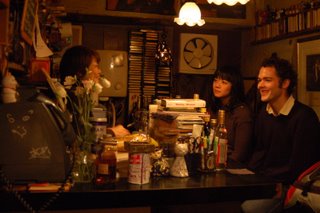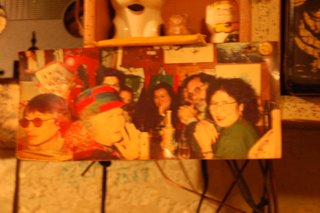Day 6 - New Year's Eve (Poor Ollie)
As the night drew in, we wrapped up and headed out into the night.
Prayers were being said in the Temple, but unsure of what was going on we wandered away and towards a low-set hut, the windows of which were glowing in the night. Inside it was like a big Viking beer hall, full of men shouting and drinking big bowlfuls of hot sake. There were huge bonfires heating huge iron cauldrons full of steaming alcohol that were hanging from the rafters. A man would come periodically and fill up a bucket from the cauldron and then ladel it out to the other men.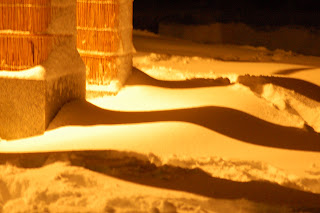 Just as we entered some kind of ritual was starting. Eight men sat in pairs around a bonfire, and were taking it in turns to stand up and with their partner, walk and stand in front of another pair. Then they would shout at each other, drink and then return to their place. The same thing would then happen but with another pair. And then again, and again, everyone getting drunker and drunker.
Just as we entered some kind of ritual was starting. Eight men sat in pairs around a bonfire, and were taking it in turns to stand up and with their partner, walk and stand in front of another pair. Then they would shout at each other, drink and then return to their place. The same thing would then happen but with another pair. And then again, and again, everyone getting drunker and drunker.
We got chatting to one of the onlookers, and it seems (as best we could understand) that the men were from different parts of the local area, chosen for their drinking ability. What we were watching was a basically a drinking contest - made up of a series of greetings. Upon greeting their neighbours, the two pairs would - as politeness dictates - drink together. Which ever pair lasted the longest in this ritual would bring pride and honour to his area. The Japanese: even their drinking-contests are battles of politeness.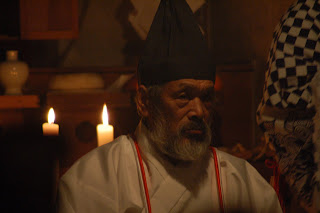
And a battle of politeness it was. Pair after pair would stand up, walk around the huge fire to stand in front of another pair, there upon - using the most polite grammar and words one can use in Japanese - they would shout aggressively at their opponents, staring at them with alcohol-crazed eyes, the flames of the fire lighting their anger-strewn faces, and they would ask (some-thing along the lines of) :
"If it's not completely disagreeable, in the name of the time-old friendship between our towns, why don't we share a spot of sake together?"
Eventually after this continuing for thirty minutes or so, a huge roar went up from the crowd. One of the pairs had apparently been unable to fulfil the obligations of friendship, and had submitted. Others followed until the winning pair were left triumphant.

We returned to the sitting-drinking pattern, and we'd just started singing Beatles songs together, when I noticed Ollie was nowhere to be seen. Bag, coat, everything where he left it, but the man himself absent. Must be in the toilet I thought, and returned to singing Imagine and Baby you can drive my car.
However as time passed, I went to check the toilet. Not there. I walked around the hut, looking for my friend. Nowhere! But then the doors opened and the men poured out again, and joining them, I made my way again to the festival-site where by now, huge bonfires roared into the sky.
It's hard to explain what happened next. Each village (including the one into which I had been adopted) had a huge rope which we lifted onto our shoulders. Then we waited for ages, half-naked, while men went around ladelling out more sake into waiting mouths. Suddenly a shout went out, and everyone started pulling the big rope as hard as they could. We dragged it down to the end of the field and then back to the hut. I'm sure it signified or meant something, but I sure don't know what it was.
Back in the hut I continued drinking and talking as the hours wound by, eventually having been invited to at least one wedding, and been instructed to return next year, I said my goodbyes and stumbled back to my room...
...which is where I found Ollie.
Ahh bless.
Though wait for the blog on the Daizenji Fire Festival, aka The Redemption

